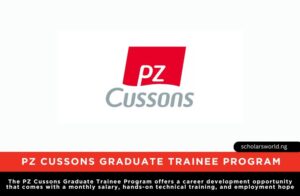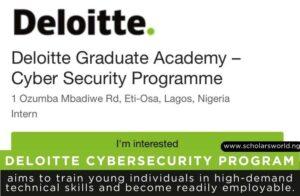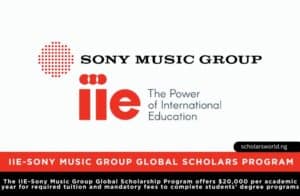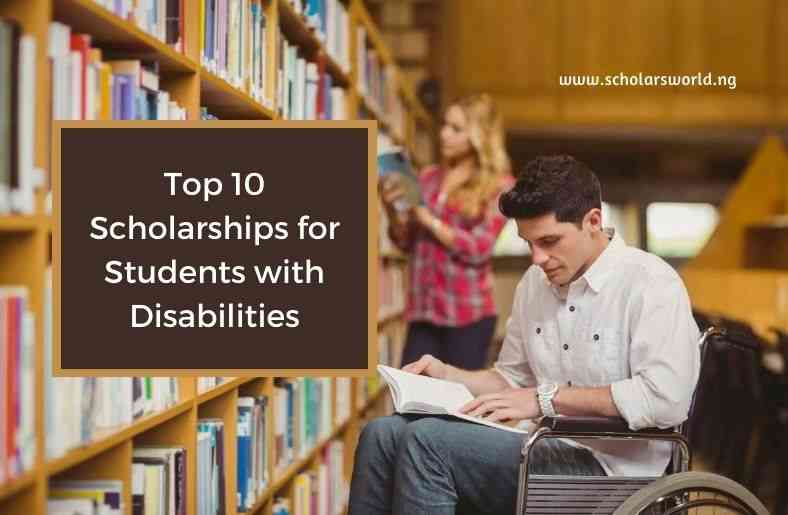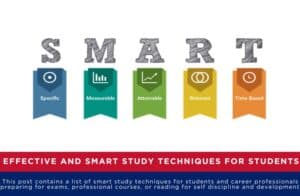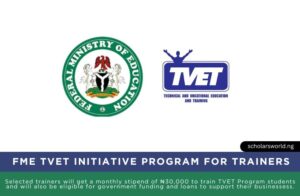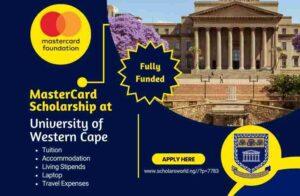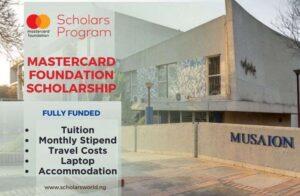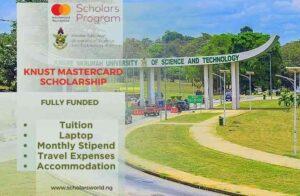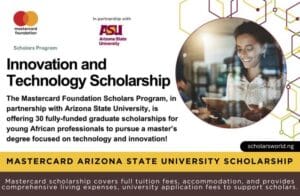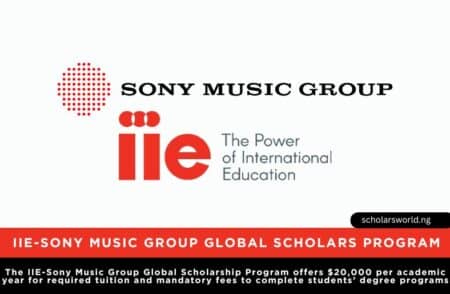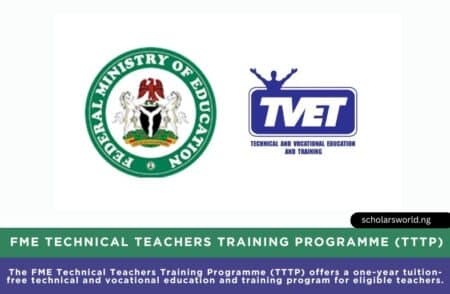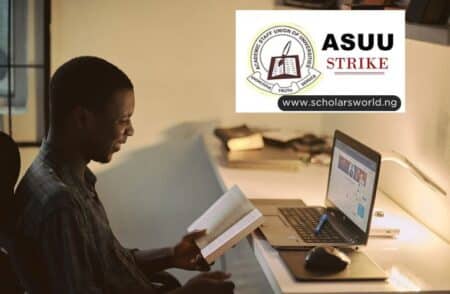Introduction
Access to quality education is a fundamental right for every individual, irrespective of their background or abilities.
In alignment with the fourth sustainable development goal of the United Nations, which promotes quality education for all, it is imperative that we extend this opportunity to students living with disabilities.
Instead of referring to them as “people with disabilities,” let’s embrace a more inclusive term: “differently-abled persons.” These individuals have not been disabled by their conditions; rather, they have adapted to society in a unique way.
Society must play a pivotal role in providing differently-abled students with equal opportunities, just as we do for others, because they are, first and foremost, human beings.
This article will explore the various available opportunities and scholarship for students living with disabilities (differently-abled students) and the essential role of society in accommodating their needs.
Understanding the Need
The UNESCO World Education Forum’s commitment in 2015 to develop education policies focused on marginalized groups, including differently-abled students, reflects the global imperative of providing quality education for all.
Every child, student, and adult has the inalienable right to access quality education, and it should not be limited to a select few.
Unfortunately, many differently-abled individuals have had to limit their dreams due to the challenges posed by their conditions. These challenges include:
1. Inadequate Structure
The educational and physical structures in many countries, especially in developing nations, are often ill-equipped to accommodate differently-abled students. Insufficient infrastructure negatively impacts the quality of education they receive.
READ ALSO
2. Inadequate Facilities
Access to necessary facilities for learning is also a significant challenge.
In many developing countries, healthcare systems struggle to meet the unique needs of differently-abled individuals, forcing them to adapt to their conditions with limited support.
3. Inadequate Funding
The high cost of living presents another hurdle for differently-abled students.
Sadly, many parents and family members cannot afford the essential resources required to care for them, creating an additional barrier to accessing quality education.
4. Inadequate Orientation
A critical aspect of addressing the needs of differently-abled students is to promote reorientation among people, including students, teachers, caregivers, and parents.
Society should relate to differently-abled individuals with emotional maturity, recognizing their humanity above all else.
When society addresses these issues, it paves the way for every student, regardless of their abilities, to access quality education and realize their dreams.
Types of Disabilities
Understanding the various disabilities differently-abled students may face is crucial in addressing their unique needs. Some of the different types of disabilities include:
1. Attention Deficit Disorder/Attention Deficit Hyperactivity (ADHD)
ADHD is characterized by chronic disturbances in areas of the brain that regulate attention, impulse control, cognitive tasks, motor functions, and social interactions. It affects three to six percent of the US population.
2. Blindness/Low Vision
Blind students rely on nonvisual media such as Braille, while legally blind students have limited vision. Low vision refers to a severe vision loss in distance or near vision, requiring the use of multiple senses for learning.
3. Brain Injuries
Brain injuries often occur in students between the ages of 15 to 28 due to accidents, poisoning, infections, insufficient oxygen, and other causes.
4. Deaf/Hard of Hearing
Deaf or hard of hearing students require different communication methods based on the degree of hearing loss and the age of onset.
Types of Disabilities (Cont'd)
5. Learning Disabilities
Learning disabilities are neurologically based and affect areas such as listening, reading, speaking, writing, reasoning, and other skills, primarily targeting intellectual abilities.
6. Medical Disabilities
Medical disabilities encompass conditions affecting one or more of the body’s systems, including respiratory, immunologic, and circulatory systems.
7. Physical Disabilities
Physical disabilities result from accidents, congenital conditions, or progressive neuromuscular diseases.
8. Psychiatric Disabilities
Psychiatric disabilities encompass a wide range of behavioral and psychological problems, including anxiety, depression, compromised reality assessment, and mood swings.
9. Speech and Language Disabilities
These disabilities can arise from hearing loss, cerebral palsy, learning disabilities, or physical conditions and may involve issues like stuttering and articulation.
Opportunities and Scholarships for Disabled Students
Differently-abled students have access to various scholarship opportunities that can help alleviate the financial burden of education and empower them to achieve their dreams. Some of these scholarships include:
A merit-based scholarship for deaf or hard of hearing students, including international students pursuing undergraduate or graduate programs.
2. Microsoft DisAbility Scholarship
Open to students seeking undergraduate degrees at US universities and interested in STEM, law, business, or related fields.
3. Google Europe Scholarship for Students with Disabilities
Available to students currently enrolled or planning to enroll in European universities, offering opportunities for bachelor’s, master’s, and postdoctoral degrees in STEM and related subjects.
4. Google Lime Scholarship Program
Open to differently-abled students from any country studying computer science or related technical fields at US or Canadian universities.
5. Oxford-Wadham Graduate Scholarship for Disabled Students
A fully-funded scholarship for EU and international students pursuing master’s degrees at Wadham College, University of Oxford, based on outstanding academic performance.
Suggested: Highly Recommended Scholarships for Disabled Students
Available for physically or sensory-disabled students from any country interested in studying in the United Kingdom.
7. University College London (UCL) Fees and Funding for Students with Disabilities
Financial support for differently-abled international students studying at UCL, catering to their unique needs.
8. Disability Grants Higher Education Grants for the Disabled
A comprehensive list of funding opportunities, including grants and scholarships, for students seeking to study in the UK.
9. QS Undergraduate Scholarship
Open to undergraduate students planning to study at universities featured on the QS rankings list.
10. University of Wales Trinity Saint David (UWTSD) Scholarships Disability Bursary
Awarded by the University of Wales Trinity Saint David, this scholarship is available to international students seeking graduate or postgraduate degrees.
In conclusion, these scholarship opportunities, along with societal support and inclusive policies, are pivotal in ensuring that differently-abled students have equal access to quality education and the opportunity to fulfill their aspirations.
Embracing and empowering differently-abled individuals is not only a moral obligation but also an investment in a more inclusive and diverse future.
For more updates on scholarships for students with disabilities, Click HERE.


